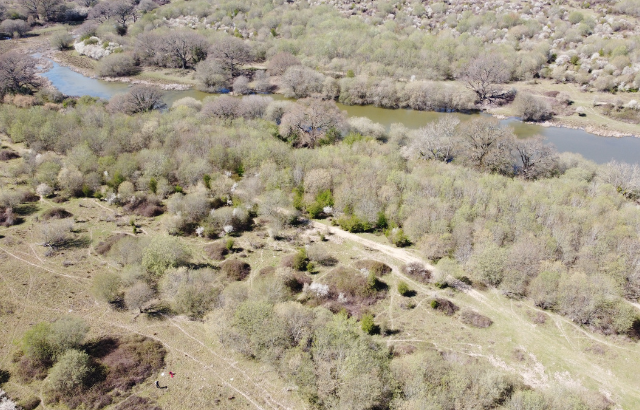Rewilding is the large-scale restoration of ecosystems to the point where nature is allowed to take care of itself. It seeks to reinstate natural processes and, where appropriate, missing species, thereby enabling them to shape the landscape and habitats within.
Funded by UKRI through the NERC/ESRC Synthesising Evidence in Economics of Biodiversity Programme, the research synthesised outcomes from over 100 published studies, aiming to assess the efficacy of rewilding in mitigating floods and droughts.
Key findings from the study reveal that while research directly exploring the movement of water through rewilded landscapes remains sparse, assessing similar types of land cover change provides valuable indicators. The evidence suggests that rewilding could lead to reduced flood magnitudes, although the impacts on low flow situations are more complex and warrant caution due to limited studies.
Professor Gemma Harvey, Professor of Physical Geography at Queen Mary University of London, and one of the lead authors of “The role of rewilding in mitigating hydrological extremes: State of the evidence”, emphasised the importance of considering the combined influence of changing animal and plant communities on water movement in rewilded landscapes. She noted, "Rewilding drives multiple interacting ecosystem changes in the same location, and future research must account for this complexity."
Furthermore, the research identified a notable gap in studying scrubland habitats, which are characteristic of natural vegetation regeneration in lowland temperate rewilding projects, therefore limiting the predictive capacity of existing studies in understanding hydrological responses.
The economic costs of floods and droughts are substantial, requiring significant government funding annually. Nature-based solutions, including rewilding, offer a promising avenue to address these challenges more cost-effectively while simultaneously enhancing biodiversity and providing social and cultural benefits to communities.
The study underscores the pressing need for ongoing monitoring and analysis of rewilding's impact on water flows in river catchments, considering both floods and droughts. Such efforts are crucial for informed decision-making and effective implementation of rewilding initiatives to bolster flood and drought resilience.
Find out more and read the full research paper here: https://wires.onlinelibrary.wiley.com/doi/epdf/10.1002/wat2.1710
Gemma Harvey has also written a blog piece for 'Wildlife and Countryside Link' with Stewart Clarke, National Specialist for Freshwater & Catchments at the National Trust, where they discuss new research reviewing the evidence for the role of rewilding in helping to build flood and drought resilience.



